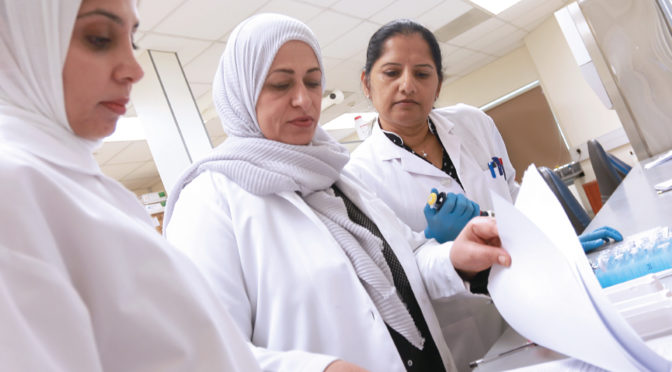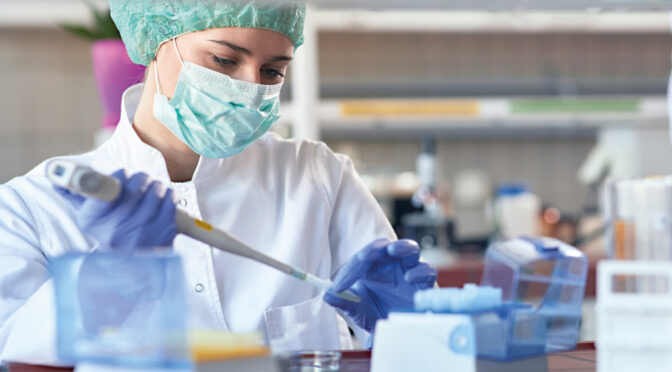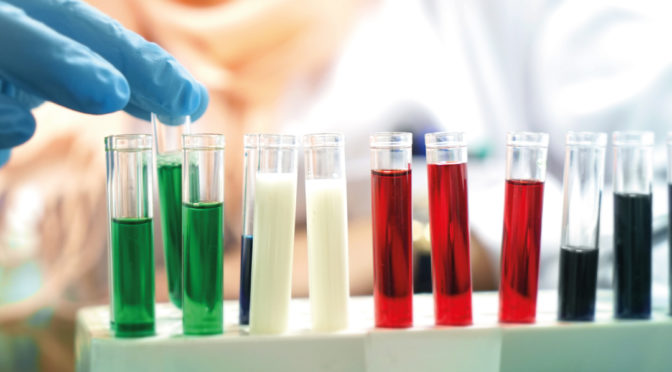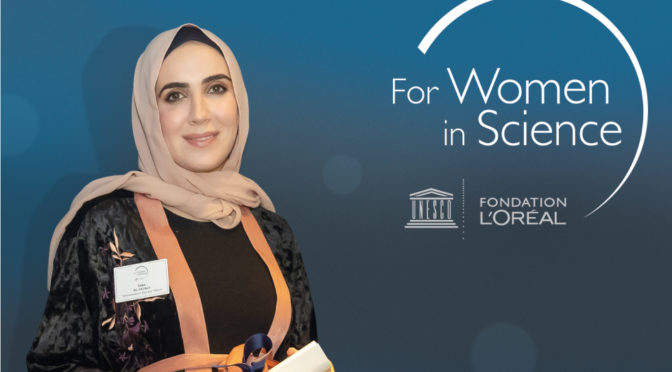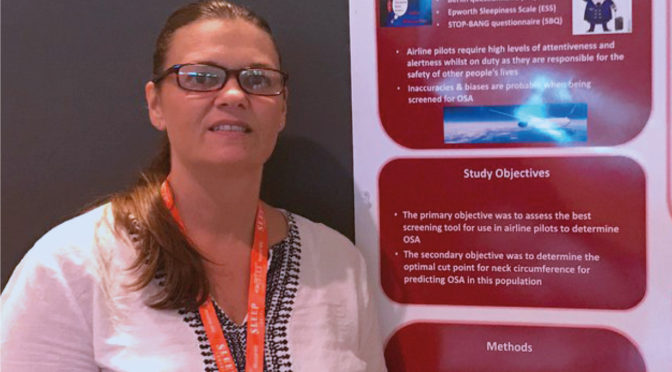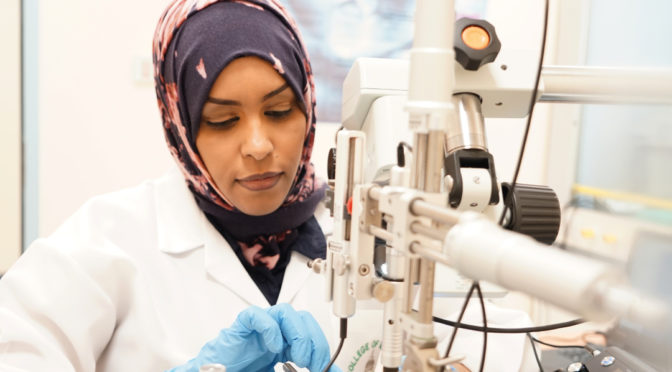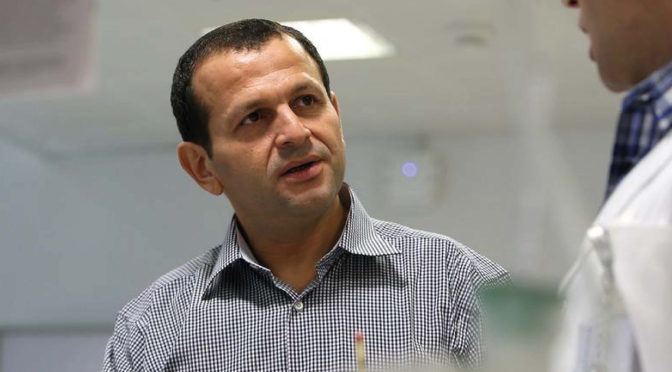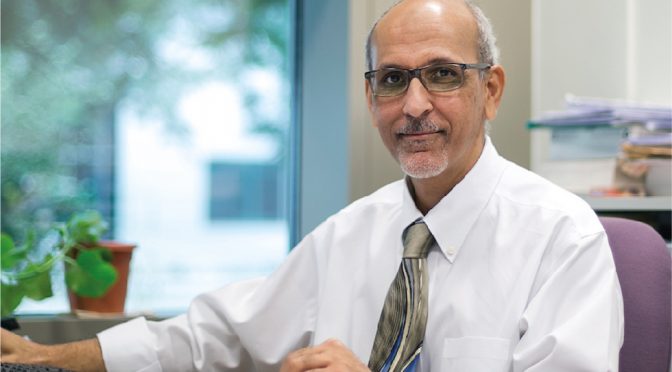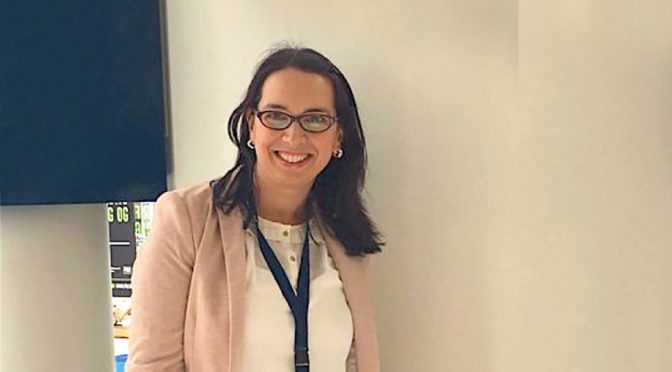في ضوء التقدّم الذي تسعى دولة الإمارات العربية المتحدة إلى تحقيقه خلال الخمسين عامًا المقبلة، نبذل قصارى جهدنا مستمدين الإلهام من الخطوات الكبيرة العظيمة التي نقطعها في مجال الابتكار الطبي والنهوض بالعلوم والبحوث. فمن الصعب الآن أن نصدق أننا قبل أقل من قرن، لم نكن نملك علاجات لأمراض مثل السل وشلل الأطفال وبدا من المستحيل تخيل أن تتمكن قارات بأكملها من التصدي للأوبئة بلقاح. فعلى مدى سنوات طويلة، كانت الاكتشافات الطبية السبيل إلى تحسين البروتوكولات والعلاجات الطبية. ومع كل اكتشاف جديد، يتولد لدينا شعور جديد بالأمل. وذلك لأن البحوث الطبية الرائدة هي التي مهدت الطريق أمام هذه الاكتشافات الطبية وأصبحت جزءًا من واقعنا.
وعلى وقع الجهود العالمية للتصدي للجائحة، حظيت الأبحاث الطبية باهتمام بالغ في عام 2020، مما أبرز الحاجة الملحة وغير المسبوقة لابتكار علاجات ناجعة وإنجازات طبية متطورة. وبدورها، لم تتوانَ مؤسسة الجليلة عن تقديم الدعم للجهود الحكومية الرامية إلى حماية حياة الأفراد، وسعت إلى توسيع نطاق محفظتها البحثية استجابةً لتفشي فيروس كورونا المستجد (كوفيد-19).
ففي أغسطس 2020، شهدنا بفخر كبير افتتاح صاحب السمو الشيخ محمد بن راشد آل مكتوم، نائب رئيس دولة الإمارات العربية المتحدة رئيس مجلس الوزراء حاكم دبي، لمركز محمد بن راشد للأبحاث الطبية متعدد الاختصاصات بقيمة تصل إلى 300 مليون درهم والذي أسسته مؤسسة الجليلة ليكون منارة الأمل لدولة الإمارات العربية المتحدة والمنطقة العربية. ويهدف مركز البحوث الطبية المستقل ومتعدد التخصصات والأول من نوعه في الدولة، إلى جمع كبار العلماء المحليين والدوليين للعمل معًا لاكتشاف حلول لأكبر التحديات الصحية في المنطقة ألا وهي السرطان وأمراض القلب والأوعية الدموية والسكري والسمنة والصحة النفسية والأمراض الفيروسية.
كما نضع على رأس أولوياتنا في مؤسسة الجليلة خلق فرص لتعزيز البحوث المبتكرة والمؤثرة في الإمارات وذلك تحقيقًا لرؤيتنا الهادفة لنكون في طليعة الابتكار الطبي في العالم. فمنذ تأسيسنا، استثمرنا حوالي 28 مليون درهم إماراتي لدعم 100 مشروع بحثي وثمان زمالات دولية في مؤسسات رائدة حول العالم.
في الوقت الذي يسابق فيه العالم لإيجاد حلول للقضاء على الفيروس، تتمتع الجهود البحثية الحائزة على التمويل الكافي بأهمية بالغة في مكافحة جائحة فيروس كورونا. كما تمثل المنح البحثية شهادةً على التزامنا بالتكيف مع الاحتياجات المتغيرة للمشهد الطبي لضمان صحة وسلامة شعبنا. ومن خلال دعم العلماء الموهوبين والاستثمار في البحوث الطبية، نسعى لتطوير الجيل القادم من المبتكرين في مجال العلوم الصحية وتمهيد الطريق أمام الاكتشافات الطبية.
كما أننا فخورون بالعمل مع أبرز العلماء في دولة الإمارات، وتقديم أحدث محفظة من منحنا البحثية إلى جانب لمحة عامة عن المشاريع التي مولناها حتى الآن.
وفي هذه المناسبة، أتوجه بالشكر لمجلس الأمناء ومجلس الإدارة واللجنة الاستشارية العلمية على ما أبدوه من اهتمام متواصل لجميع متلقي المنح وزملائنا على تفانيهم في البحث الطبي الحيوي ولا ننسى هنا الجهات المانحة التي تمكننا من تجاوز الحدود العلمية للارتقاء بحياة الأفراد.
د. عبد الكريم سلطان العلماء
الرئيس التنفيذي
عضو مجلس الإدارة
مؤسسة الجليلة


